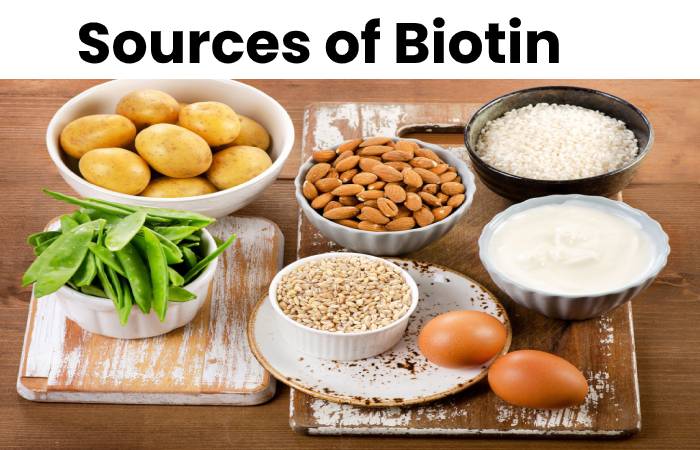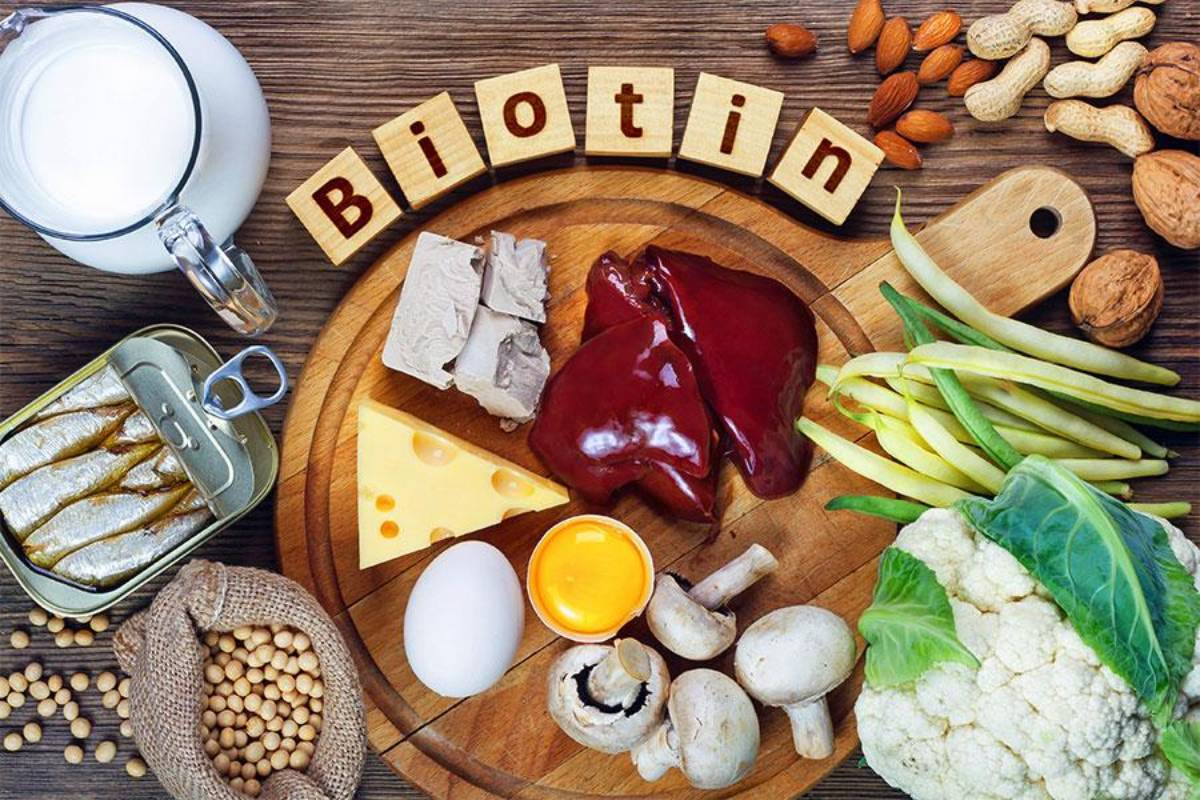Table of Contents
What is Biotin?
Biotin belongs to the vitamins of the B group and is also known as vitamin H.
The body uses it to give strength to proteins that strengthen the hair, skin, and nails, plus the advantage of converting nutrients into energy.
Because it is soluble in water, it is vital to obtain it through food.
What are the Benefits of Biotin?

1. Cellular Energy
- Biotin helps the transformation of fats and carbohydrates into glucose and breaks down proteins into amino acids.
- It ensures that the body makes the most of the nutrients it consumes to produce energy to create new cells.
- If you have a biotin deficiency, you are likely to feel tired, exhausted, and low on energy.
2. Skin
- Biotin helps break down fatty acids, which then distribute to vital organs throughout the body, including the skin.
- These fatty acids protect skin cells, helping to retain moisture and prevent dry skin.
- Insufficient biotin levels can disrupt oil production, the first signs of which are often on the skin. Biotin also uses for dandruff.
3. Hair
- Biotin is sometimes called vitamin H, which stands for the German word “Haar” (hair).
- Its role in fatty acids’ metabolism helps nourish the hair follicles and supports the hair matrix to prevent breakage.
- Many people take high biotin levels for hair loss, as observed to accelerate hair growth.
- In men, biotin has also been used to fill in beards and cover patches.
4. Nails
- Biotin helps in keratin production, which is the main protein in nails and is useful for strengthening weak nails.
- A six-month investigation found that a daily intake of 25 mg resulted in a 25% growth in nail thickness.
- Every person involved in the study report improvements, while half also experienced less nail breakage. It is also useful in treating hoof abnormalities in animals.
- However, many of the clinical trials performed so far have not been approved by official bodies, and more reliable studies are needed to conclude.
5. Diabetes
- Low levels of it can affect how glucose works. One study found that taking 9 mg a day for two months dramatically lowered glucose levels.
- It has also been shown that a mixture of biotin and chromium can lower blood sugar levels in people with poorly controlled diabetes.
Side Effects of Biotin
- It has no known toxicity and well-tolerated at doses up to 450 mcg per day.
- High amounts of pantothenic acid (vitamin B5) and alpha-lipoic acid can interfere with biotin absorption and increase biotin deficiency risk.
- Research has also shown that tall consumption of raw egg whites could be problematic.
- Raw egg whites contain a material that binds to biotin in the intestine and prevents its absorption.
- But it would help if you ate a lot, up to two egg whites a day for a pair of months. So, for a maximum of us, eating eggs won’t be a problem.
What are the Sources of Biotin?

- Although the body cannot produce it, some bacteria that colonize in the small and large intestine can synthesize it.
- It can find in foods like oats, nuts, carrots, mushrooms, milk, rice, and cheeses.
- If you are having a hard time getting sufficient amounts from your diet alone, a biotin supplement may help.
- These are available as single-ingredient supplements or as part of a vitamin B complex or multivitamin supplements.
How Should be Take Biotin?
- When seeing the use of herbal supplements, seek the advice of your doctor. You may also consider checking a practitioner who trains in the use of herbal/health supplements.
- If you choose to use it, as absorbed on the set or as directed by your doctor, pharmacist, or another healthcare earner. Do not use extra of this product than recommended on the label.
- Measure liquid medicine wisely. Use the dosing syringe if, or use a medicine dose-measuring trick (not a kitchen spoon).
- It can cause false results with specific medical tests. Tell any doctor who pleasures you that you are using it.
- The recommended dietary allowance of biotin rises with age. Follow your healthcare provider’s orders.
- The ideal biotin intake depends on the health, age, and lifestyle of the consumer.
- A recommended daily requirement has not been established, only that a maximum of 450mcg per day can take with a supplement.
- It may take 3 to 6 months earlier the disorder of your hair or nails improves.
- Call your doctor if the disorder you are treating with biotin does not advance or if it gets worse while using this product.
- After you break using biotin, your nails will likely return to their original condition within 6 to 9 months.
- Store at room temperature away from wetness and heat.
What are the Contraindications and Warnings of Biotin?
- It contraindicates in case of allergy to any of the components.
- Avoid mixing with alcohol since this substance is one of the causes of a lack of Biotin.
- There are no indications of risk for human consumption or in pregnant women. Manufacturers suggest 30 mg daily doses for pregnant women.
- It has a shallow risk during lactation.
Conclusion
It is necessary for standard body function, and supplements may help pregnant women and some people with diabetes.
Still isn’t enough data offered to support supplementation or rights about healthy hair, skin, or nails.
With that said, it’s always good knowledge to eat a regular, healthy diet of nonprocessed or minimally treated foods for your optimal health.
Also Read: What is Mint? – Properties, Benefits, Uses, Types, and More

